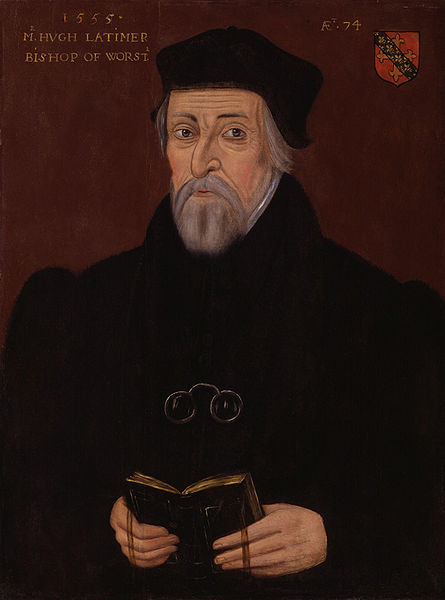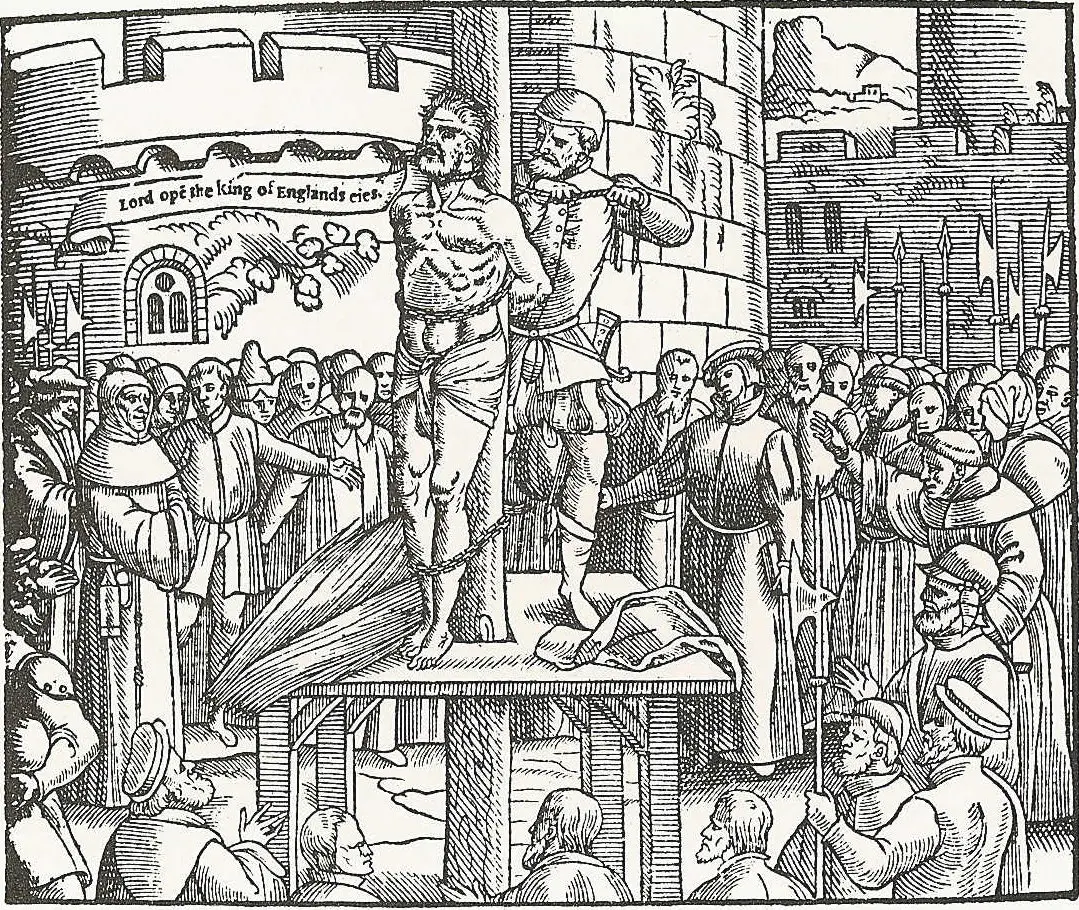 On 5th October 1553, the first Parliament of Mary I's reign met. It repealed the "treason act" of Edward VI's reign, passed an act declaring the legitimacy of Mary I, repealed the religious legislation of Edward's reign, and reinstated the Mass in Latin, celibacy of the clergy and ritual worship. It was as if the reformation of Mary's half-brother's reign had never happened.
On 5th October 1553, the first Parliament of Mary I's reign met. It repealed the "treason act" of Edward VI's reign, passed an act declaring the legitimacy of Mary I, repealed the religious legislation of Edward's reign, and reinstated the Mass in Latin, celibacy of the clergy and ritual worship. It was as if the reformation of Mary's half-brother's reign had never happened.
A report to the Pope regarding this first Parliament stated:
"During that interval Parliament met, being opened on the 5th [instant]; when the Bishop of Winchester made a very fine speech, in which he treated amply of the union of the religion, and that it should be resumed (net quale trattava amplamente dell' unione delta religione et che si dovesse retornare . . . a quella (sic)), without which nothing good could be done; demonstrating how many disadvantages had befallen the realm owing to its separation (mostrando quanti inconvenienti erano intervenuti in quel regno per la separations di essa). He accused himself and all the bystanders (astanti) as guilty of it, telling them that Parliament was assembled by her Majesty and Council to repeal (cancellare) many iniquitous laws made against the said union, and to enact others in favour of it."1
In Cardinal Pole's instructions for Master Thomas Goldwel, his messenger to the Queen, Pole wrote of the steps that Mary I was taking and intending to take:
"First of al, Seeing that the whole cause of my sending you to her Highnes at this time is grounded upon the request, that her Grace maketh unto me in her letters sent me these dayes past from the Empe∣rors court, dated in London the xxviij. of October, in the Latine tongue: Wherunto her G[race]. doth demand answer of me in two points: One is, touching the difficulty she feareth, by signes she seeth already, touching the renouncing of the title of the Supremacy of the Church in her Realmes, when it shal be put forth in the Parlament: Which signes be, that wheras her Majesty already hath caused to be put forth to the Parlament the abolishing of those lawes, which concerned the annul∣lation of the Legitimate matrimony of the gracious Lady, the Queen Mother to her G. the same passing the Upper house, and put forth to the Lower, albeit in the effect they would not refuse to aggree to al that might make to the establishing of the right of her G. to the Crown, yet they did not gladly hear of the abolishing especially of that law, that gave that title, of the Supremacy of the Church in the Realm, to the Crown: Suspecting that to be an introduction of the Popes au∣thority into the Realm: Which they cannot gladly hear of. And for this cause cannot gladly hear of my Legation in the Popes Name: Wherupon her G. in the same letters doth exhort me to stay my voyage until a more opportune time: And asketh my counsil, in case the lower House make resistance in the renouncing of the title of Supre∣macy, what her G. were best to do, and what course she had best to take:"2
Simon Renard wrote to the Emperor:
"First, as Parliament is not going well and there is difficulty about religion, the Pope's authority and the restitution of Church property, so much so that a conspiracy has been discovered among those who hold that property either by the liberality of the late Kings Henry and Edward, or by purchase, who would rather get themselves massacred than let go, and the majority of Parliament refuses to admit the Pope's authority or to come back into the fold [...]"3
As Anna Whitelock notes in her biography of Mary, "although the bill was eventually passed, it demonstrated that though Parliament was willing to restore church services and religious ceremonies to the pattern of the 1540s, it was not prepared to sanction the abolition of the Supreme Headship and the return of papal authority in the realm."4
Notes and Sources
- Calendar of State Papers Relating To English Affairs in the Archives of Venice, Volume 5, 1534-1554, 813, p. 431. http://www.british-history.ac.uk/cal-state-papers/venice/vol5/pp426-440 [accessed 19 August 2016].
- Strype, John, 1643-1737, THE APPENDIX TO THE MEMORIALS OF Archbishop Cranmer in Memorials of the Most Reverend Father in God, Thomas Cranmer sometime Lord Archbishop of Canterbury wherein the history of the Church, and the reformation of it, during the primacy of the said archbishop, are greatly illustrated : and many singular matters relating thereunto: now first published in three books: collected chiefly from records, registers, authentick letters, and other original manuscripts Strype, John, 1643-1737, p. 171, Early English Books
- Calendar of State Papers, Spain, Volume 11, 1553, p. 305. http://www.british-history.ac.uk/cal-state-papers/spain/vol11/pp302-308 [accessed 18 August 2016].
- Whitelock, Anna (2009) Mary Tudor: Princess, Bastard, Queen, Random House, p.212-213.



Leave a Reply